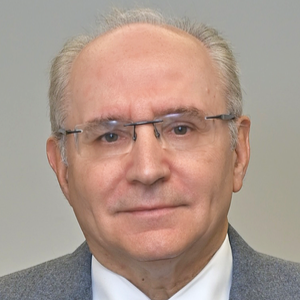I regularly meet clients who have been retired for 10 to 15 years and, remarkably, have not had the time to implement an estate and/or elder law plan for themselves. I understand that retirees have busy lives: After all, traveling and playing golf, tennis, pickleball, and bocce can be quite time-consuming! (Perhaps not as time-consuming as babysitting, chauffeuring around the grandkids, or arranging and attending doctor appointments, but still…) Yet, for the life of me, I just can’t understand why one would wait until their 80s to implement an elder law and/or estate plan.
While implementing an estate plan at any age is better than not doing so at all, the risks and adverse consequences of waiting are significant. For example, delaying the execution of a Durable Power of Attorney with broad gifting provisions and a Health Care Proxy creates the possibility that if one has become incapacitated (mentally and/or physically) and is unable to make financial and personal decisions, they will need to have a Guardian appointed for them.
A Guardianship proceeding must be commenced in the Supreme Court of the County where one resides in New York. It is expensive, time-consuming, and can be emotionally taxing for all parties involved, particularly if it ends up being contested. Ultimately, the person appointed as Guardian may still be unable to make the financial transactions necessary to protect the incapacitated person’s assets from the cost of long-term care (especially, if the objective is eligibility for Medicaid home care). This outcome can be easily avoided by executing a broadly drafted Durable Power of Attorney and Health Care Proxy long before this could come to pass.
The failure to be proactive also rears its ugly head if one has not implemented an elder law plan at least five years before requiring nursing home Medicaid and, once the new law is implemented in 2025 or 2026, at least two-and-a-half years before requiring Medicaid home care. If one waits until their late 70s and/or 80s to execute and fund a Medicaid Asset Protection Trust (MAPT), they are increasing the risk that they will need to privately pay for their care in a nursing home or at home, which could potentially dissipate their life savings.
It is quite common in the New York metropolitan area for a nursing home to cost between $175,000 to $220,000 per year and for home care to run approximately $150,000 to $175,000 per year. For a person of modest means, this can be devastating.
Even for the affluent, the risk of delaying implementation of an estate plan with estate tax planning techniques can be detrimental. This is especially true for New York residents who have estates greater than approximately $7 million in the year 2024, and thus, may be subject to New York’s onerous estate tax cliff. Additionally, while the Federal Estate and Gift Tax exemption will be $13.61 million per person in 2024, said exemption will sunset if it is not extended by December 31, 2025, and on January 1, 2026, it will be reduced to approximately $7 million per person. Moreover, the failure to utilize part or all of the Federal Gift Tax exemption before it sunsets, by gifting assets and implementing an estate tax plan, subjects one’s estate to the potential for significant estate taxes, with a combined Federal and New York estate tax rate of 49.9%.
While being proactive is a great idea during any stage in life, the failure to do so when one has reached retirement age can be quite expensive.
* Anthony J. Enea is the managing attorney of Enea, Scanlan and Sirignano, LLP of White Plains, New York. He focuses his practice on Wills, Trusts, Estates and Elder Law. Anthony is the Past Chair of the Elder Law and Special Needs Section of the New York State Bar Association (NYSBA), and is the past Chair of the 50+ Section of the NYSBA. He is a Past President and Founding member of the New York Chapter of the National Academy of Elder Law Attorneys (NAELA). Anthony is also the Immediate Past President of the Westchester County Bar Foundation and a Past President of the Westchester County Bar Association. He is also fluent in Italian. He can be reached at (914) 948-1500 or at www.esslawfirm.com.
















